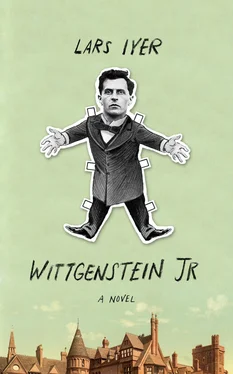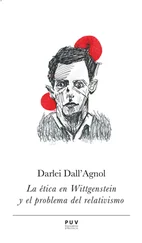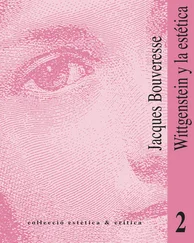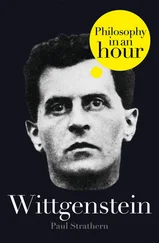DOYLE: And you’re that Ede, I suppose?
EDE: I am that Ede.
Half of the class have paid their visits to Wittgenstein’s rooms. A pattern has emerged. He directs questions at you, and you reply, as best as you can. He asks about your parents, about your siblings. About the place you grew up.
Scroggins reports on the austerity of Wittgenstein’s rooms. Their white walls. The two wooden chairs, one for the host, one for the guest, and the card table between them, for the tea tray. He thinks he did poorly, he says. He’s not sure why.
Alexander Kirwin describes the buttered scones that Wittgenstein served on a dish; Benedict Kirwin, the metal teapot and two enamel cups, brought in on a tray.
Wittgenstein likes his tea very weak , Mulberry testifies; he poured a cup for himself almost as soon as he filled the teapot. And he brought a pan and brush from the kitchen to sweep the crumbs from the table.
Titmuss talked India, he says. His gap year. Wittgenstein seemed interested (EDE: Believe me, Wittgenstein wasn’t interested). Okulu took note of the bookshelves — Augustine in Latin. Freud’s book on dreams. Marcus’s Meditations . Unknown volumes in Cyrillic. In ancient Greek.
Memorable things Wittgenstein said. To Scroggins: It is never difficult to think. It is either easy or impossible . To Okulu: What stands between us and good philosophy is the will, not the intellect . And then, We must refine the will . To Titmuss: You must know who you are, in order to think without deceit . To Chakrabarti, he said that he was looking for a just word. For a new language of creation . To Doyle: We are latecomers. Disinherited children . And then: We are without tradition. Without belief .
The unity of his teaching. That’s what he wants us to perceive, he says. His teaching depends on its cumulative effect.
The recurrence of certain topics, and the disappearance of others. Are we beginning to sense a pattern?
The rhythm of his lecturing. The long pauses he leaves between remarks: is it intended as a kind of punctuation? Of syncopation ?
Sometimes he pauses in his teaching to pose questions, and reacts to our replies.
When one of us says something helpful, he raises his eyebrows, and says, Go on . But when he hears something he finds un helpful, his eyebrows fall again.
Helpful: Ede’s remark about indiscernibles. Doyle’s remark about syllogistic form.
Unhelpful: Okulu’s remark about deduction. Alexander Kirwin’s reply about induction.
Altogether irrelevant: Chakrabarti’s remark about subduction. Scroggins’s remark about production.
Entirely facetious: Benwell’s sotto voce remark about alien ab duction.
Competition in class: Who can hold their breath the longest? Guthrie tries, holding his breath for a few minutes, before gasping loudly. Mulberry tries, and collapses, blue-faced, on the floor.
WITTGENSTEIN (vexed): What’s the matter with you, man?
Notes passed in class. Mulberry to Doyle: You’re a whiny little bitch . Doyle to Mulberry: You have a micro-penis . Mulberry to Doyle: You have a nano-penis . Doyle to Mulberry: You have a quantum penis. It’s both there and not there .
Fights in class. Mulberry punches Doyle, giving him a dead arm. Doyle pinches Mulberry, making him squeal out loud.
Wittgenstein, quoting: Anything a man knows, anything he has not merely heard rumbling and roaring, can be said in three words. He hears only rumbling and roaring, he says. Our rumbling and roaring.
The view from the window. Heavy gulls, though we’re far from the sea. The wind tearing the last leaves from the tree. The groundskeeper, with a roller, flattening the turf.
How cold it is out there! And how dark it’s getting, even though it’s only mid-afternoon!
One more year of study before we have to go outside. Actually, it’s only four-fifths of a year now, before the wind will whip around us …
Will we really have to go out there? Will we have to make our way in the world? Not now. Not yet. We’re not ready …
Standing in the corridor, waiting for the previous class to finish. It’s five minutes past the hour.
Wittgenstein, staring at the door, leather satchel under his arm. Wittgenstein, rocking on his toes. Wittgenstein, knocking loudly. Opening the door …
WITTGENSTEIN (severely): Excuse me, would you mind …
Students file out, and then the lecturer, to whom Wittgenstein bows slightly.
A PowerPoint presentation on the whiteboard. Bullet points. Pictures. Leftover handouts on the desks. Photocopied excerpts from an introductory book.
Where is our list of key concepts ? Where are our aims and objectives ? Where are the learning outcomes for our lectures? Where is our virtual learning environment ?
His classes are just a series of remarks, separated by silences. Ideas, in haiku-like sentences, full of delicate beauty and concision.
Each remark concentrates in itself all of his teaching, he says. Each remark crouches like a wolf ready to pounce, for the one who can hear what he is saying.
DOYLE: How are we meant to know what lies behind your remarks?
WITTGENSTEIN (the quote marks audible): Nothing lies ‘behind’ my remarks.
DOYLE: Is there some theory you’re trying to express?
WITTGENSTEIN: I am trying to think, that’s all. I am trying to ask questions.
DOYLE: Then what are we supposed to learn from your lectures?
WITTGENSTEIN: Structures. That’s all I want you to see. Depths .
DOYLE: But I can’t see anything!
Wittgenstein turns over the most ordinary words for inspection. He insists on beginning anew. On starting again, all over again. On discarding false beginnings. On struggling to a yet more originary beginning, on pushing back to ever deeper fundaments. On swimming against the current, against all satisfaction.
There are moments of apparent progress in his class. Moments of clarification, when he smiles bleakly. But then, there is the perpetual return of doubt. Of despair. Of failure .
He leans forward in his chair, eyes closed. Then, opening his eyes, he looks up at us, with a pained expression on his face.
There is something he hasn’t yet realised , he says. Something he hasn’t seen . If only it could be shown to him.
His torment. Halfway through class, he utters a loud cry. He’s giving up logic for good, he says. He’d have made a better clown than logician.
A long pause, before he starts again.
If a man could write a book on philosophy, which was really a book on philosophy, this book would, with an explosion, destroy all the other books in the world , he quotes.
He is trying to write such a book, he says. The Logik. Die Logik .
Wittgenstein, on his chair at the front of the room. Who will come with him to wash off his brain?
Outside. Wittgenstein, walking ahead of us. Students in surging groups. Students everywhere, a sea of them, moving in fast currents.
Posh students everywhere. Rah boys in gilets and flip-flops, with piles of bed-head hair. Rugby types, as big as fridges, all red-cheeked health, their voices booming. Rah girls dressed down in gym gear and pony-tails. English roses in horse-and-hound clothing, as though fresh from the gymkhana. Yummy not-yet-mummies in fur-lined Barbour. Ethno-Sloanes, with string tops and slouch-bags. Sloane-ingénues with big cups of coffee, sweater sleeves half pulled over their hands …
EDE: The Cambridge type . Revolting! When was the last time you met anyone working class at Cambridge?
Читать дальше












